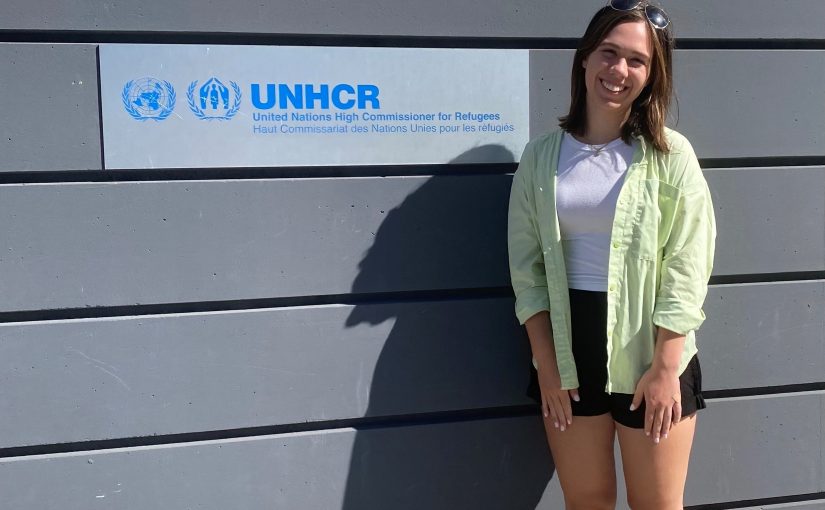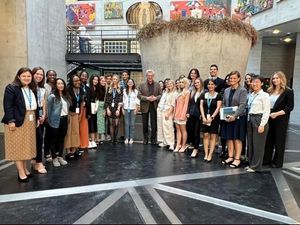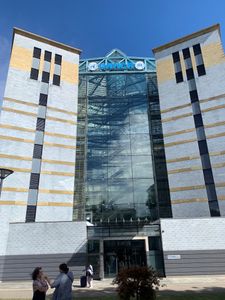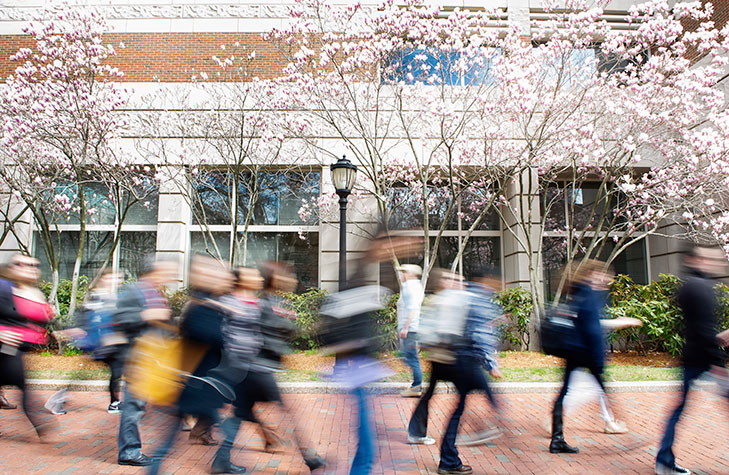Bridgette Lang (CAS’23)
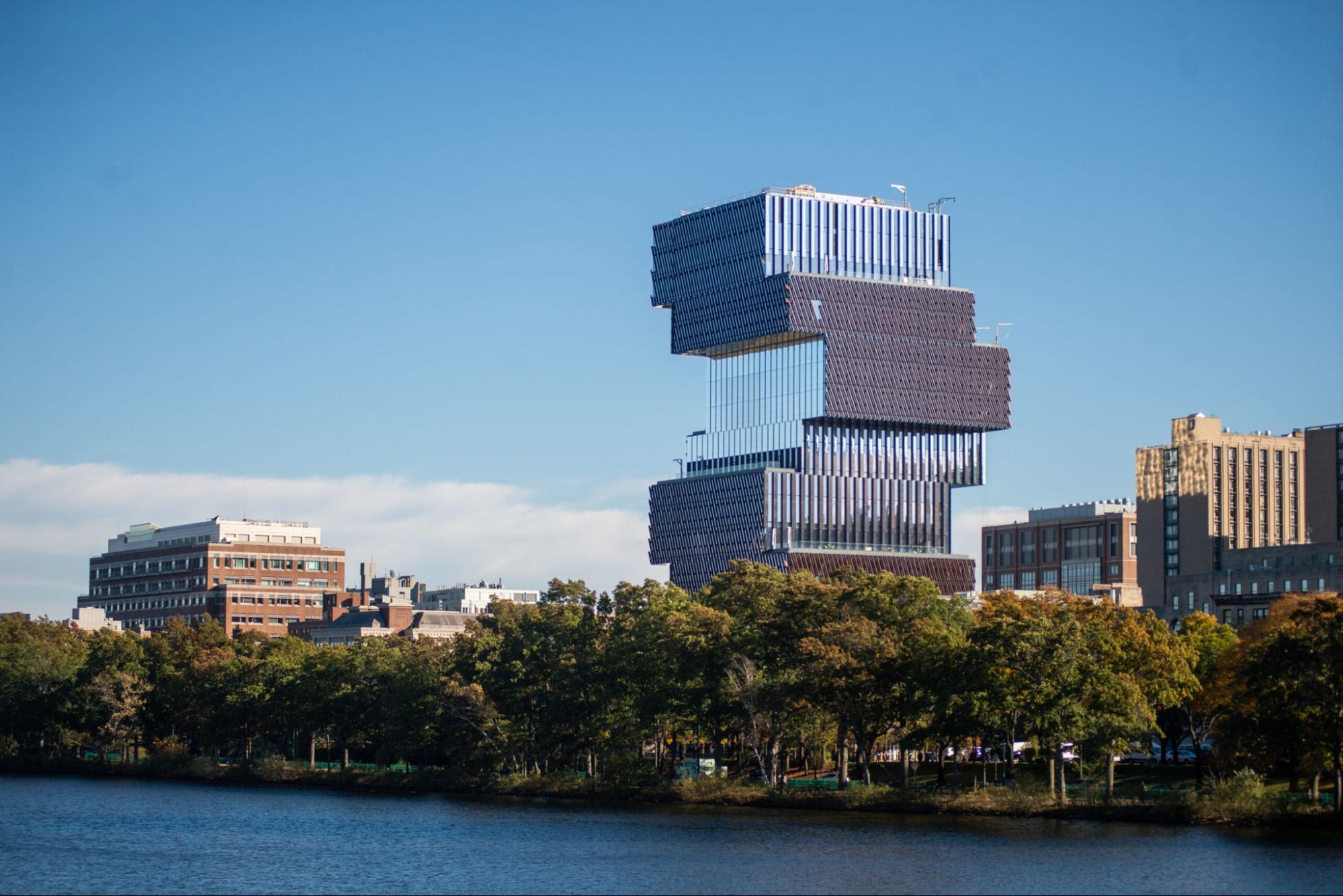
As one of the tallest and definitely most striking buildings on campus, it’s hard to miss Boston University’s new Center for Computing & Data Sciences (CDS) building. While this building has already made an iconic debut to Boston’s skyline, it also has a number of perks and opportunities to offer Boston University students starting in 2023. As of last week, I’ve been able to take a walk around the new CDS building, and here are some of my favorite features as an undergraduate student:

1. Saxby’s – At least for me, no study session is complete without coffee. It’s incredibly convenient to grab a drink on the first floor of CDS before you start a class or a study session. Saxby’s also offers grilled cheese sandwiches and other bakery items.
2. Many study spaces! – CDS might have the most study spaces of all BU buildings. After all, it’s a 345k-square-foot building. On the first through the fifth floors, you’ll find tables, chairs, and benches at every turn. All of the furniture is brand new too, so head to CDS to study in style.

3. BU Spark! – BU Spark! aims to help students realize their potential by providing access to resources, knowledge, and expert networks to support their innovation journeys. BU Spark! hosts an event space in CDS, which will hopefully make their amazing programming even more accessible to students. Learn more about Spark!’s undergraduate project support and funding here.
4. Outdoor patio – Although it doesn’t appear to be open at the moment, there is an outdoor patio that looks like it will be absolutely delightful in the summer. It’s like a little, green oasis in the shiny and high-tech CDS building. Once it warms up outside, I can’t wait to hit the patio to catch great views of Boston and soak up the sun.
5. Great views of Boston – Standing at 19 floors tall, CDS surely has some of the greatest views of the city. Featuring wide windows and an observatory patio on the fifth floor, nearly every floor overlooks the city. With views of the Charles River, I would also imagine this is a great spot to watch the Charles Regatta in the fall.
Did I also mention that CDS is also eco-friendly? The list of great things about CDS goes on and on. Although, one of the negatives to CDS is that is incredibly crowded, as all of Boston University’s students want to check out and use the new facilities. Give it a few months, and hopefully, the chaos will quiet down. If you’re interested in learning more about CDS, visit this website for information on the construction and live cameras.

